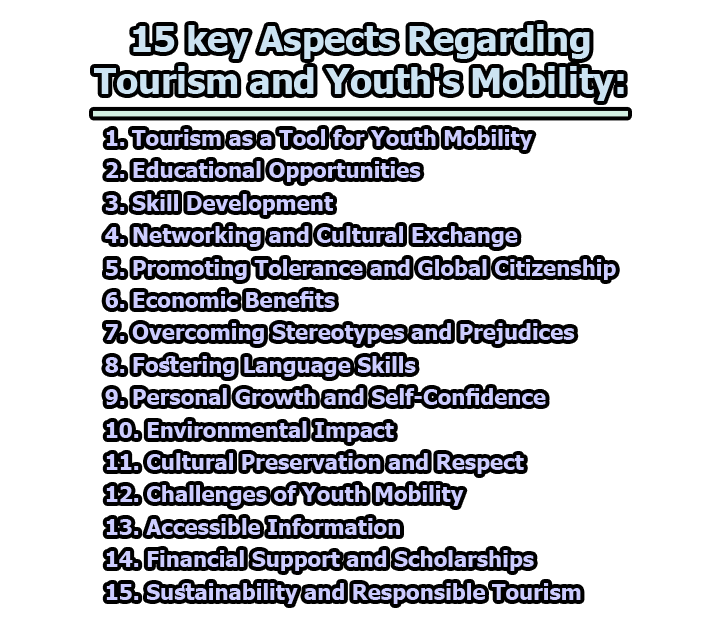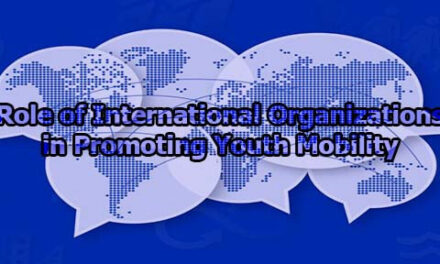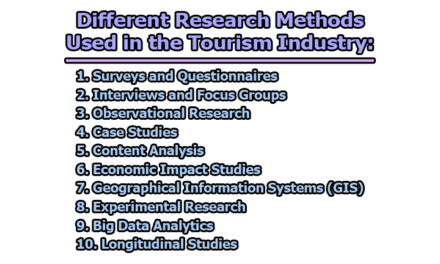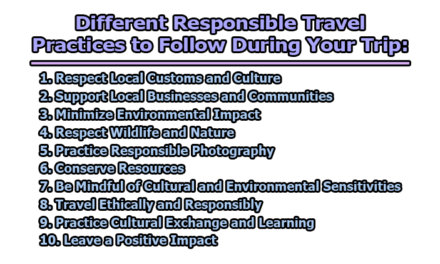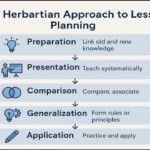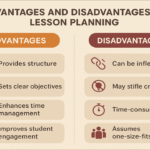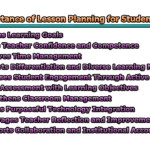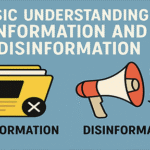15 key Aspects Regarding Tourism and Youth’s Mobility:
Tourism and youth mobility are two facets of our contemporary world that hold immense potential for personal growth, cultural enrichment, economic development, and global understanding. As young people venture beyond their familiar surroundings, exploring new destinations and engaging with diverse cultures, they embark on a journey of self-discovery and cross-cultural interaction. This journey offers a wealth of educational opportunities, the development of critical life skills, and the forging of friendships that transcend borders. Furthermore, the economic benefits of youth tourism are substantial, generating revenue, creating jobs, and fostering economic prosperity in various regions. Youth mobility also plays a crucial role in promoting tolerance, breaking down stereotypes, and nurturing a sense of global citizenship. However, in the pursuit of these remarkable benefits, we must address the associated challenges, such as financial constraints, safety concerns, visa restrictions, and the need for accessible information. Additionally, it is imperative that we emphasize sustainable and responsible tourism practices to protect the environment and preserve cultural heritage. In this article, we explore 15 key aspects regarding tourism and youth’s mobility.
1. Tourism as a Tool for Youth Mobility: Tourism serves as a gateway for young people to explore new horizons, fostering a sense of adventure and curiosity. It pushes them out of their comfort zones, exposing them to different cultures, lifestyles, and worldviews. Through travel, they not only see the world but also learn more about themselves. They encounter situations that require them to adapt, make decisions, and interact with people from diverse backgrounds. This process encourages personal growth, self-discovery, and a deeper understanding of cross-cultural dynamics. Travel becomes a mirror in which youth see their own values, beliefs, and biases, offering an opportunity for self-reflection and transformation.
2. Educational Opportunities: Travel extends beyond the classroom, offering young people an interactive and experiential form of education. Visiting historical sites, museums, and cultural centers can bring history, geography, and social sciences to life. For instance, standing in front of the Pyramids of Giza or exploring the ruins of Machu Picchu is a history lesson that textbooks can’t replicate. Youth can also immerse themselves in foreign languages, improving language proficiency. It’s a hands-on education that instills a sense of wonder and appreciation for the world’s diversity.
3. Skill Development: Youth mobility equips individuals with a unique set of life skills. Adaptability, a key trait in a rapidly changing world, is honed as young travelers navigate unfamiliar environments, cope with unexpected situations, and communicate in foreign languages. Problem-solving skills are sharpened as they find solutions to logistical challenges, from missed flights to lost passports. Communication skills develop as they interact with people from different backgrounds and cultures. Independence is fostered as they take responsibility for planning their journeys and making decisions about their travel experiences. These skills become indispensable in personal and professional development, enabling youth to tackle challenges with confidence.
4. Networking and Cultural Exchange: Travel serves as a powerful catalyst for cross-cultural friendships and cooperation. Young people, as they traverse the globe, meet individuals from diverse backgrounds and form bonds that transcend borders. These relationships not only enrich their lives but also have significant implications in an interconnected world. The friendships formed during travels often lead to collaborations and partnerships that can span industries, benefiting both individuals and their communities.
5. Promoting Tolerance and Global Citizenship: Experiencing different cultures firsthand is a potent antidote to intolerance. Youth who travel come to realize that beneath the surface, people from various backgrounds share common values, dreams, and aspirations. This firsthand understanding fosters empathy and a sense of global citizenship. They become more inclined to embrace diversity, champion tolerance, and actively engage in addressing global challenges, recognizing that the world’s issues are interconnected, and their actions have a global impact.
6. Economic Benefits: Youth tourism is a significant driver of economic growth. When young people travel, they contribute to the local economy by spending on accommodation, dining, transportation, and various entertainment activities. Tourism-related businesses flourish, creating jobs and generating revenue that supports the overall economic health of a region. The economic benefits extend beyond the travel sector, influencing various aspects of the economy.
7. Overcoming Stereotypes and Prejudices: Youth mobility acts as a bridge across cultural divides, breaking down stereotypes and prejudices. When young people interact with individuals from different cultures, it challenges preconceived notions and fosters empathy. It is challenging to hold onto stereotypes when you’ve shared meals, stories, and experiences with people from diverse backgrounds. Such interactions humanize the ‘other,’ undermining stereotypes and promoting understanding.
8. Fostering Language Skills: Traveling provides a real-world environment for language learning. Young people often immerse themselves in foreign languages when they travel, making it a highly effective method for becoming proficient in a language. This not only aids communication during travel but also enhances their linguistic abilities for academic and professional pursuits.
9. Personal Growth and Self-Confidence: Youth mobility pushes individuals out of their comfort zones and forces them to navigate new and unfamiliar environments. This process can be transformative. It challenges them to confront their fears, make independent decisions, and handle unexpected situations. As they overcome these challenges, their self-esteem and self-confidence grow. The belief that they can handle whatever life throws their way is a valuable asset, both personally and professionally.
10. Environmental Impact: Responsible tourism is a crucial consideration for youth travelers. Encouraging them to adopt eco-friendly practices, minimize waste, and support conservation efforts is essential. Sustainable tourism practices not only protect the environment but also ensure that these destinations remain beautiful and accessible for future generations.
11. Cultural Preservation and Respect: Youth travelers should be educated on the importance of respecting and preserving the cultural heritage of their host destinations. This education should stress the avoidance of cultural appropriation, and travelers should understand the significance of preserving historical sites and traditions. Cultural sensitivity is vital to ensuring that travel benefits both the traveler and the local population.
12. Challenges of Youth Mobility: While youth mobility offers numerous advantages, it also comes with its own set of challenges. These include financial constraints, safety concerns, visa restrictions, and limited access to quality information.
13. Accessible Information: Easily accessible and reliable information is pivotal in enabling youth mobility. Governments, travel agencies, and organizations should offer comprehensive resources on travel destinations, visa processes, safety measures, and cultural sensitivities. Reliable information empowers young people to make informed decisions and stay safe during their travels.
14. Financial Support and Scholarships: Many young people are unable to travel due to financial constraints. In response, governments, organizations, and institutions should provide financial support and scholarships to ensure that disadvantaged youth can experience the benefits of mobility. Scholarships can cover expenses related to travel, accommodation, and other associated costs, making travel accessible to a broader demographic.
15. Sustainability and Responsible Tourism: The promotion of sustainable and responsible tourism practices among youth is vital for the protection of both the environment and the cultural heritage of destinations. Encouraging eco-friendly habits, minimizing environmental impact, and supporting local communities should be integral to youth mobility initiatives. By doing so, we can ensure that the world remains a place of wonder and exploration for generations to come.
In conclusion, tourism and youth mobility are inseparable from the broader tapestry of our interconnected world. They offer young people a transformative journey, one that enriches their lives and contributes to the betterment of society. Through travel, youth gain valuable life skills, a deeper understanding of diverse cultures, and an increased sense of global citizenship. Their economic impact is not to be understated, as tourism bolsters local economies and fosters job creation. However, to realize the full potential of youth mobility, we must overcome financial constraints, safety concerns, and visa restrictions, while ensuring that information is accessible and reliable. Moreover, the principles of sustainability and responsible tourism must be at the forefront of our efforts to safeguard the environment and preserve the cultural heritage of the destinations we explore. As we navigate the challenges and embrace the opportunities of tourism and youth mobility, we contribute not only to our own personal growth but also to a more tolerant, diverse, and globally connected world.
References:
- Mignon, J-M. (1997). Tourism and Youth Mobility in Europe: Paths for the Future, BITS Information no. 143.
- Minciu, R., & Moisă, C. (2006). Motivaţiile tinerilor în practicarea turismului, Conferinţa Internaţională „Serviciile şi competitivitatea”, Facultatea de Comerţ, ASE Bucureşti.
- Mintel International Group Ltd. (2006). Youth Travel Market (Europe). London: Mintel.
- Richards, G., & Wilson, J. (2003). Today’s Youth Travellers: Tomorrow’s Global Nomads. New Horizons in Independent Youth and Student Travel, International Student Travel Confederation (ISTC), Amsterdam.
- Seekings, J. (1995). Europe’s youth travel market, Insights Vol 7, B39-53.

Assistant Teacher at Zinzira Pir Mohammad Pilot School and College

